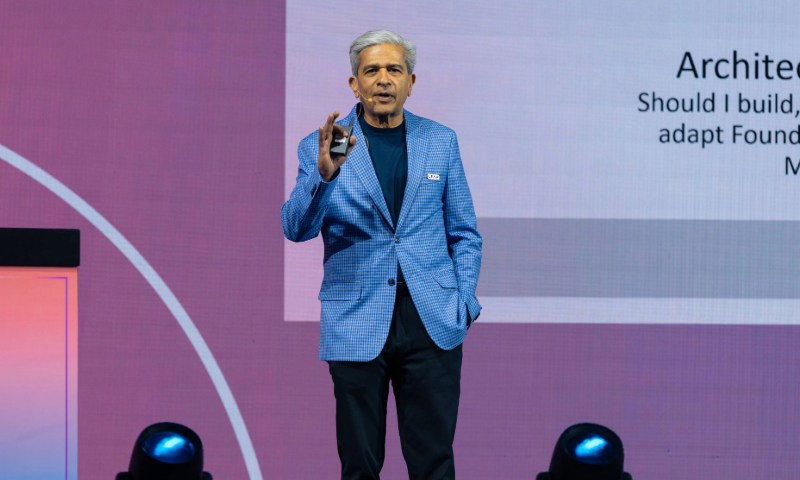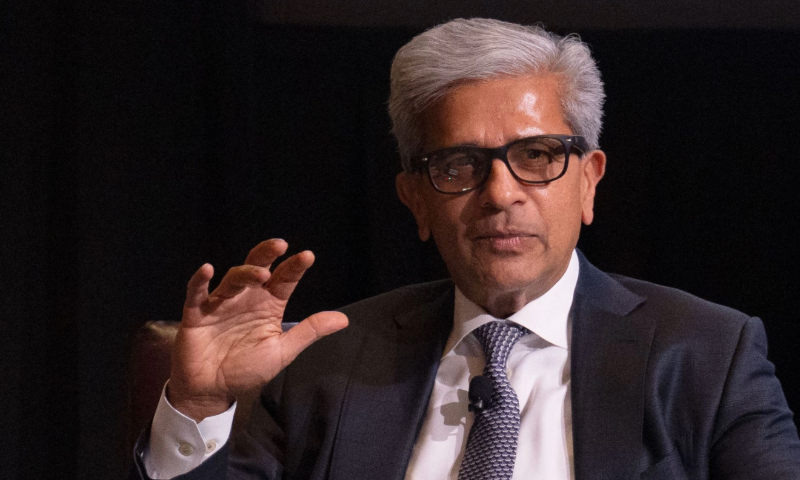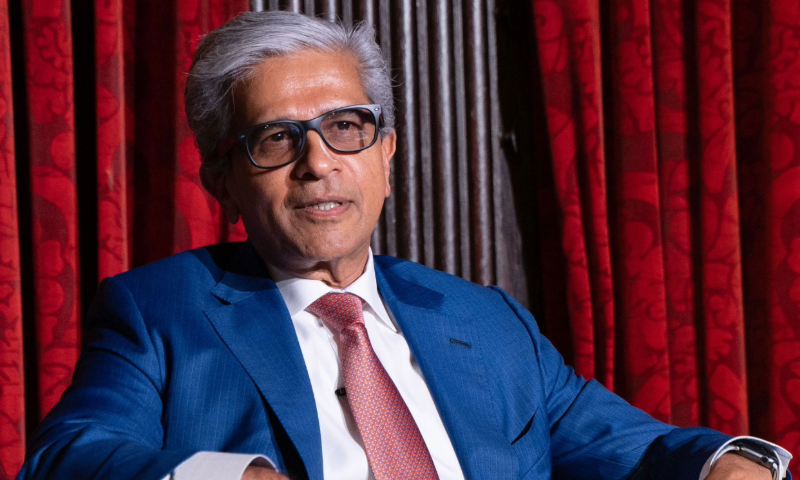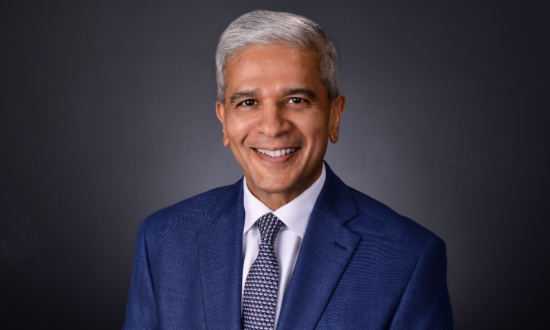Anil Cheriyan founded Phase IV Ventures, where he works closely with PE/ VC firms in providing Board oversight, advisory services and investments. In addition, he advises several clients and is a sought-after speaker on technology matters. Anil’s previous positions include CTO at Cognizant Technology Solutions, CIO at Truist (formerly SunTrust), senior partner at IBM Consulting, and partner at PwC. He also served as White House Presidential Appointee for Technology Transformation of the US federal government. Anil earned his Master of Science and Master of Philosophy Degrees in Management Science and Bachelor of Science in Electronic and Electrical Engineering from Imperial College in London, UK.
Recently, in an exclusive interview with Digital First Magazine, Anil shared his professional trajectory, significant career milestone, personal sources of inspiration, his favorite quote, future plans, words of wisdom, and much more. The following excerpts are taken from the interview.
Hi Anil. Can you walk us through your background and what you’re most passionate about in your work?
I have a fairly global background – born in India, growing up in Italy, attending college in London and having worked primarily in the US. I spent 30 years in consulting and became a partner at Coopers & Lybrand, which became PwC Consulting that was sold to IBM. One of my clients, a large US bank called SunTrust (now Truist), hired me as their CIO.
After retiring from the bank, I took on a US Presidential Appointment to run Technology Transformation Services for the federal government. My last full-time role was CTO of Cognizant – a global systems integration firm, running their Strategy & Technology.
I currently serve on several boards, personally invest in late-stage growth firms, speak at industry conferences, and provide advisory consulting services to PE firms and CIOs.
I am passionate about this exciting time that we find ourselves in which technology is going to rapidly transform the make-up of enterprises and our everyday lives. In my line of work, I am getting to witness this massive transformation firsthand and am playing an active role in helping define and execute some of this change. It’s fun being in the “arena”.
What role do you believe information technology will play in shaping the future of business and society, and how are you working to drive innovation and transformation in this area?
In the post World War II era, information technology began to be used in several aspects of our lives – accounting, payroll, public service, banking, healthcare, warfare, etc. We talked about the dawn of the Information Age. And through all the major technology cycles – personal computers, mobile phones, internet, social media – we saw massive application of technology as we digitally transformed our business and consumer interactions.
Now, we find ourselves at the early stages of a new S-curve in technology. The convergence of several technologies, that led to the emergence of Generative Artificial Intelligence, will dramatically change all aspects of business and society. As we train computers to recognize, process, act and learn from multiple information modes – video, text, unstructured data, audio, music – we will change the ways in which we interact with each other and AI agents. This will reshape individual companies and whole industry ecosystems as we strive to drive value across workflows.
Lastly, when this new technology gets further integrated into the physical world – think robotics, self-driving cars, robotaxis, humanoid agents – we will see more radical change into all aspects of our lives. It is not unthinkable to see each of us having a personalized, supercomputer, humanoid assistant that naturally replaces our multiple devices.
I enjoy working in the dawn of this tremendous new world. However, I am also concerned about the several risks associated with this new world – as it relates to privacy, security, ethics – and most importantly, how do we as humans survive and evolve while increasing our dependence on these super intelligent agents. To that end, I have joined the board of an AI start up that seeks to build Responsible AI governance frameworks.

How do you stay current with the latest developments and trends in technology, and what resources or networks do you rely on for information and insights?
As you can imagine, this is something very important to me as a person who has spent most of his career in technology. The rate and pace of technology change and its impact on the world can, at times, feel overwhelming. There are two approaches to staying current – passive and active.
Passively staying current is primarily through reading trade publications, belonging to industry networks or attending conferences. There are several good sources of information and over time you cull through these and build a set of your go-to publications or networks.
Active learning in staying current is primarily through the work that I do on boards, advisory services, and speaking or writing engagements. There is no better way of learning about the latest developments than dealing with real issues that companies face and putting yourself in a position where you have center stage in advising, writing or speaking about the issues. This forces you to understand what’s really going on with the practical realities of technology change.
What has been your most career-defining moment that you are proud of?
As you can see, my career has spanned several different domain areas – professional services, financial services, federal government, global systems integration, and now boards and private equity. In each of those areas, I attained a senior management role in globally recognized, industry leading firms or institutions. So, I am proud of my accomplishments in each of those career stages.
Perhaps the most career-defining moment was being admitted as an equity partner in Coopers & Lybrand’s (predecessor firm to PwC) management consulting practice at the young age of 36. It was a recognition of my contributions that culminated in a yearlong, challenging selection process, resulting in my acceptance into firm leadership. It felt good and opened several doors into business and social communities.
If you could have a one-hour meeting with someone famous who is alive, who would it be and why?
This was probably the toughest question – especially about people who are currently alive. There are so many historic and famous people who are no longer alive that I would love to understand more. In the world of the living and in technology, I would pick Satya Nadella. He has changed the culture of a firm that seemed about to fail and turned it into one of the most successful and valuable entities in the world. He has written his own autobiography that touches on how he did this. I would love to spend time to understand that better, and to explore where he would like to take the firm, and himself, next.

Who has been a personal role model or mentor to you throughout your career?
While I haven’t had a single role model or mentor throughout my career, I have had several different role models and mentors during different phases of my career. During my consulting career, I looked up to some of the senior partners in the firm and some of the senior executives at my clients. One senior client executive role model stood out in the way he took on the Chief Information Officer role of a traditional Fortune 500 company and drove transformative change across the entire company. He thought big, focused on execution, and wasn’t afraid to course correct when needed. He brought on a small group of senior advisors from outside the company to act as his personal board. It was awe-inspiring to watch him in action.
How do you keep your mind healthy and stay resilient? And how do you motivate your team?
I believe that a healthy body engenders a heathy mind and therefore natural resilience. Over the last several years, I have made it a point to work out every morning, eat healthy and ensure that I get 7 – 8 hours of sleep. This disciplined routine becomes naturally replicated in all things related to work, dealing with relationships, and managing stress. Furthermore, I find that I can deal with stressful situations if I do these three things – prepare, prepare, prepare!
With regards to motivating teams, I have learned the hard way. Initially I was not very good at it. Early in my career, I was focused on high achieving, high performing teams – and had no patience for team members who “didn’t get it”. Over time, I have learned to spend effort in bringing people along and working together as a team. I would say the biggest character traits that I had to develop over these years are empathy and vulnerability. Being empathetic and demonstrating personal vulnerability has helped me in building trusting and motivated followership. I am very proud of the fact that several of the leaders who worked for me are now CIOs or leaders in their own areas.
What is your favorite quote?
I am not usually one to follow famous quotes or remember them. I love listening to famous speeches – especially of people in their defining moments. But here is a quote that captured my imagination.
“Try not to become a man of success, but a man of value” Albert Einstein.
I think we all strive for success when we are younger. It tends to define us – what job to you have, how wealthy are you, where do you live, etc. But as you get older, and hopefully wiser, you wonder to yourself what value have you really provided – to your family, your friends and acquaintances, your community, your profession. That’s what really should define who you are, as a person.

Where do you see yourself in the next 5 years?
Having recently left the world of the full-time employed and now working on a portfolio of various engagements – boards, advisory services, investments and speaking engagements – I feel I have now developed the flexibility to pursue activities that are interesting and intellectually rewarding.
I can tweak this every year by adding or subtracting engagements as needed. More recently I joined two interesting boards. One is the Harvard & Smithsonian Astrophysical Observatories – where we try to answer the big questions – like where did the universe come from, and is there life on another planet? And the other is Synergist Technologies – an AI start-up – that focuses on how best to ensure that the AI being deployed is governed well.
This is the most exciting time to be in the technology world and I would want to remain in the “arena” in 5 years.
What legacy do you hope to leave in the field of technology, and how do you envision your work impacting the future of business and society?
It seems very grandiose to think about my work affecting the future of business and society. Also, the use of the word “legacy” is usually attributed to someone who is reaching the end of one’s career. Far from it, I don’t see myself staying away from the “arena” any time soon.
Hopefully, my legacy will be one of someone who played in the forefront of this exciting technology change, provided great perspectives and advice, and helped mentor and grow other leaders in this space.






